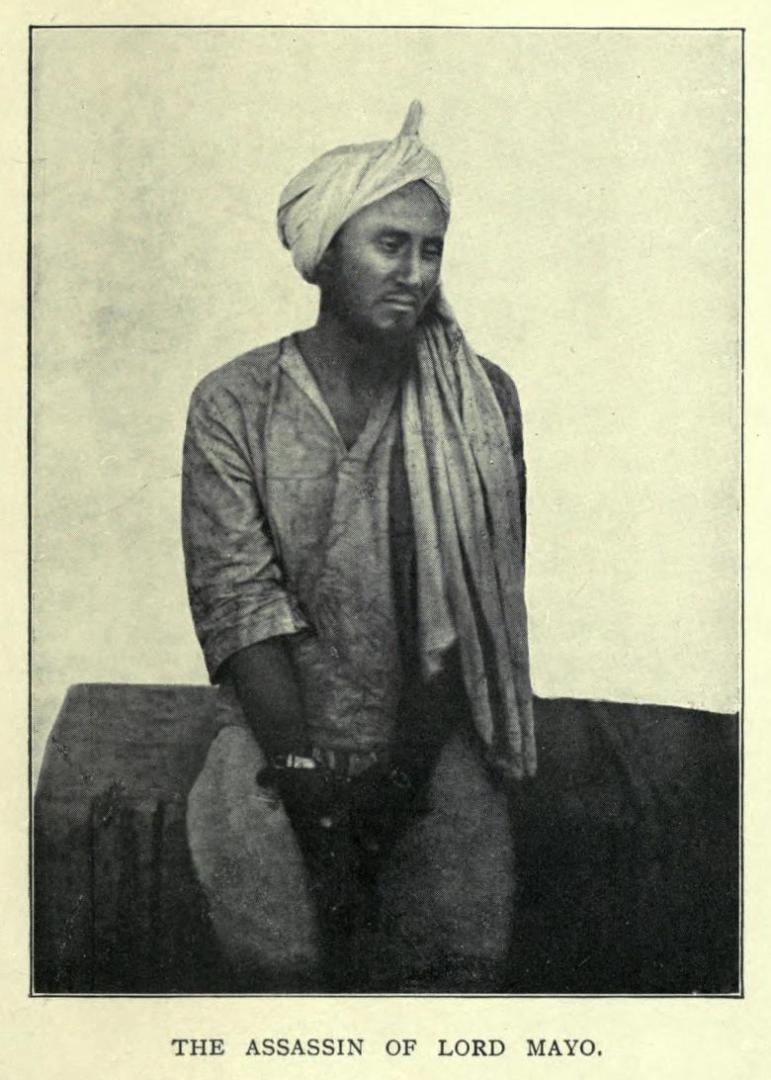
d: 1872
Sher Ali Afridi
Summary
Name:
Years Active:
1867 - 1872Status:
ExecutedClass:
MurdererVictims:
2Method:
StabbingDeath:
March 11, 1872Nationality:
India
d: 1872
Sher Ali Afridi
Summary: Murderer
Name:
Sher Ali AfridiStatus:
ExecutedVictims:
2Method:
StabbingNationality:
IndiaDeath:
March 11, 1872Years Active:
1867 - 1872bio
Born in the rugged Tirah Valley of Khyber Agency, then part of British India, Sher Ali Afridi hailed from the Kuki Khēl clan of the Afridi Pashtun tribe. The contours of his early life were shaped by tribal tradition, familial honor, and the sweeping changes of colonial rule. In the 1860s, he joined the Punjab Police, serving under the Commissioner of Peshawar. Later, he was enlisted in a cavalry regiment stationed at Ambala, which saw him serve through the Indian Rebellion of 1857 in Rohilkhand and Oudh.
His conduct earned him praise amongst Europeans. In particular, Major Hugh James employed him as a cavalry trooper, and Reynell Taylor appointed him as a mounted orderly. Taylor’s admiration culminated in him gifting Sher Ali a horse, a pistol, and a certificate.
murder story
By early February 1872, Sher Ali’s simmering resolve found its target. The Viceroy of India, Richard Southwell Bourke, 6th Earl of Mayo, embarked on a prison inspection tour of Port Blair on February 8, 1872—a rare visit by such a high-ranking official to the remote penal colony. This place, both geographically remote and symbolically weighty, housed both criminal and political prisoners. Mayo intended to assess regulations and welfare provisions for inmates, a reform-minded gesture that belied the brutality of the penal reality.
Concealed by dusk’s shadows at the foot of Mount Harriet (today known as Mount Manipur), Sher Ali waited. As Lord Mayo concluded his inspection around 7:00 PM and was walking toward his waiting boat. with Lady Mayo nearby, Sher Ali struck. Emerging from the dark, he lunged forward and stabbed the Viceroy in the neck, not once, but twice. Mayo staggered, gasping out "They’ve got me," before falling into shallow water; he surprisingly managed to stand and attempt to return to his ship, whispering “Take me to the ship” and “Lift up my head” even as blood poured from his wounds. He died soon after.

Security personnel, twelve guards, swiftly apprehended Sher Ali on the scene, yet the breach had already reverberated across the British Empire.
Sher Ali gave no indication of remorse. He insisted he acted on divine instruction, saying he killed “on the instructions of God”, and readily posed for photographs amid the chaos. The British investigation considered possible ideological links, some noting the presence of jihadist-inspired inmates, but found no concrete connections between Sher Ali and external conspirators.
Sher Ali was promptly tried and sentenced to death. On March 11, 1872, he was hanged at Viper Island prison.